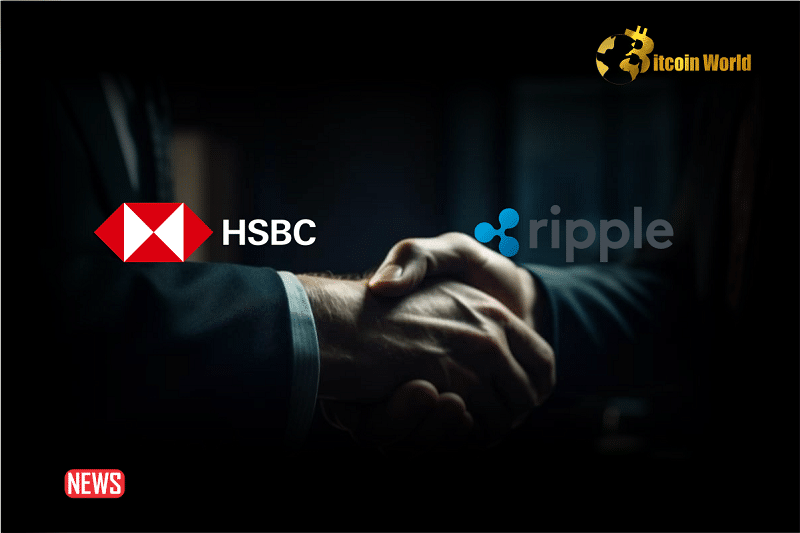The financial world is buzzing with the latest development from HSBC, one of the UK’s banking giants. HSBC is teaming up with Metaco, a Ripple-owned technology company, to offer digital asset custody services. What does this mean for the future of institutional crypto adoption? Let’s dive in.
HSBC Enters the Digital Asset Custody Arena
HSBC’s move signifies a major step towards integrating digital assets into traditional finance. The bank plans to provide custody services for digital assets, such as tokenized securities, to its corporate clients starting in 2024. This is not just a minor update; it’s a strategic decision that could reshape how institutions interact with cryptocurrencies and blockchain technology.
- HSBC will use Metaco’s technology to safeguard clients’ digital assets.
- The initial focus is on tokenized securities, not yet including stablecoins or cryptocurrencies directly.
- This initiative builds upon HSBC’s existing digital asset ventures like the tokenized physical gold service (HSBC Orion).
Why is HSBC Partnering with Ripple’s Metaco?
Ripple’s acquisition of Metaco for $250 million highlights the growing importance of secure digital asset custody. Metaco, a Swiss-based company, specializes in providing the infrastructure needed to store and manage digital assets safely. By partnering with Metaco, HSBC gains access to cutting-edge technology and expertise in this rapidly evolving field.
What are Tokenized Securities?
Tokenized securities are traditional financial instruments, like stocks or bonds, represented on a blockchain. This process allows for fractional ownership, increased liquidity, and faster settlement times. HSBC’s focus on tokenized securities indicates a strategic approach to integrating blockchain technology into existing financial frameworks.
The Significance of Institutional Custody
Institutional custody refers to the secure storage and management of assets on behalf of institutional investors, such as hedge funds, pension funds, and corporations. As these institutions increasingly explore digital assets, the need for reliable and secure custody solutions becomes paramount. Ripple estimates the institutional cryptocurrency custody market could reach $10 trillion by 2030, underscoring the massive potential in this sector.
What Does This Mean for the Future of Digital Assets?
HSBC’s entry into digital asset custody signals growing acceptance and maturity of the digital asset market. It paves the way for more institutions to confidently invest in and utilize digital assets. However, challenges remain:
- Regulatory Uncertainty: Clear and consistent regulations are needed to foster innovation and protect investors.
- Security Risks: Robust security measures are essential to prevent theft and fraud.
- Scalability: Blockchain networks must be able to handle increasing transaction volumes.
HSBC’s Perspective
John O’Neill, HSBC’s head of global digital asset strategy, emphasizes the bank’s commitment to the development of digital asset markets. By offering custody services, HSBC aims to provide a secure and regulated environment for institutions to engage with digital assets.
In Conclusion
HSBC’s collaboration with Ripple’s Metaco marks a significant milestone in the evolution of digital assets. By providing custody services for tokenized securities, HSBC is bridging the gap between traditional finance and the world of blockchain. As more institutions follow suit, the digital asset market is poised for continued growth and innovation.
Disclaimer: The information provided is not trading advice. Bitcoinworld.co.in holds no liability for any investments made based on the information provided on this page. We strongly recommend independent research and/or consultation with a qualified professional before making any investment decisions.
Disclaimer: The information provided is not trading advice, Bitcoinworld.co.in holds no liability for any investments made based on the information provided on this page. We strongly recommend independent research and/or consultation with a qualified professional before making any investment decisions.


